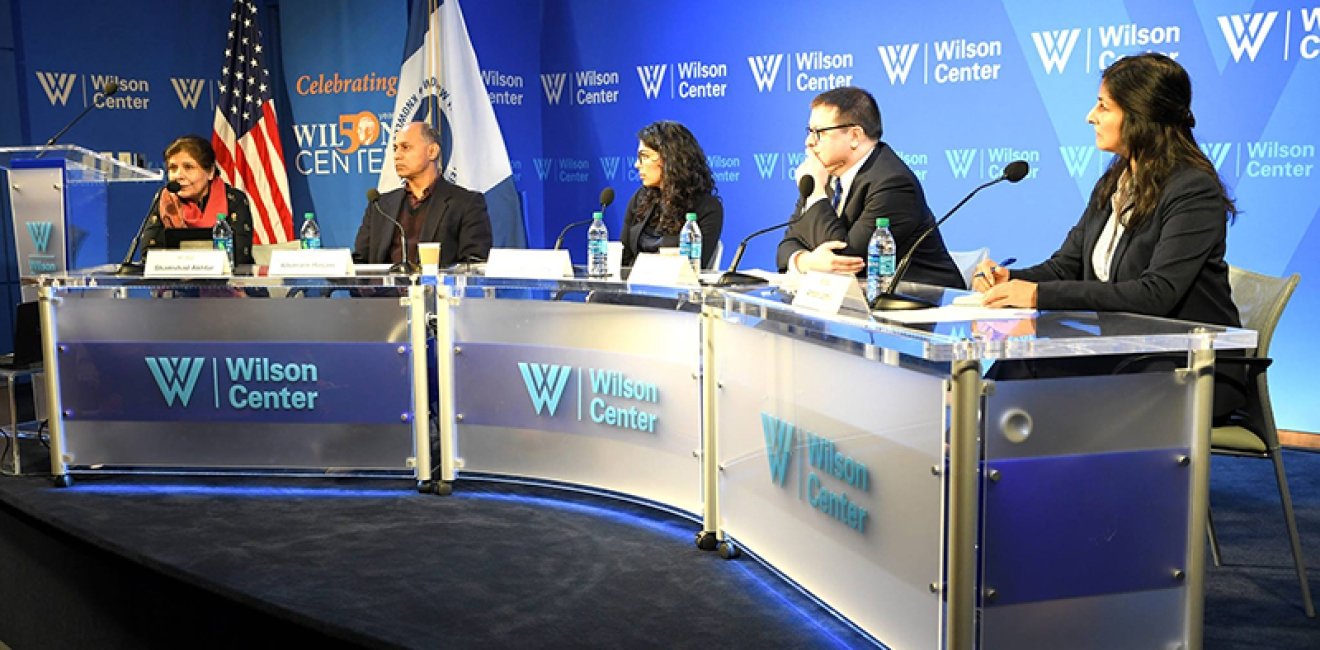
A blog of the Indo-Pacific Program
On October 17 and 18, the Asia Program, in partnership with INDUS, convened its Pakistan Policy Symposium—an unprecedented two-day conference, held at the Wilson Center, on the challenges and opportunities for Pakistan in the years ahead.
At a moment when there is a degree of “Pakistan fatigue” in Washington, the strong turnout throughout the two days was an indication that there still is sustained interest in the country. One of the questions that we frequently received from the audience was “What’s next?”
That’s a fair point. Many conferences and seminars tend to be one-off affairs, with little follow up—meaning that momentum and enthusiasm tends to dissipate.
This is why we intend to prepare a written product that articulates a series of policy recommendations and suggestions that emerged from the symposium. These will focus on a range of issues—reflecting the wide array of subject matter highlighted at the conference—and will include how to strengthen a sputtering U.S.-Pakistan relationship; how to stabilize a troubled Pakistani economy; how, if at all, to get the United States, Pakistan, and Afghanistan to partner together on fashioning a workable endgame for Afghanistan; how to unleash the potential of women’s entrepreneurship and the contributions of the Pakistani diaspora; and how to tackle entrenched challenges such as violent extremism.
We don’t claim to have all the answers, and the recommendations outlined in the written product certainly shouldn’t be seen as a fully comprehensive document. Still, at a time when much of the focus on Pakistan—at least in Washington—is framed narrowly through the lens of Afghanistan, and how Pakistan can help the United States achieve its goals there, we hope that applying this broad lens will fill some gaps and serve as a useful contribution.
The written product will consist of a series of brief policy briefs, drawing on the expertise of some of the participants in the symposium as well as its organizers. The product should be published later in the year, and will be publicized widely and shared with policymakers in the United States and in Pakistan. Stay tuned.
Image Courtesy of INDUS.
Follow Michael Kugelman, deputy director of the Asia Program and senior associate for South Asia, on Twitter @MichaelKugelman.
The views expressed are the author's alone, and do not represent the views of the U.S. Government or the Wilson Center. Copyright 2018, Asia Program. All rights reserved.
Author


Indo-Pacific Program
The Indo-Pacific Program promotes policy debate and intellectual discussions on US interests in the Asia-Pacific as well as political, economic, security, and social issues relating to the world’s most populous and economically dynamic region. Read more





